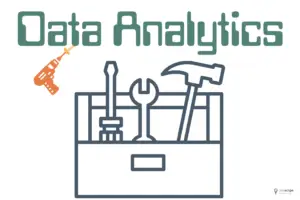Introduction: Why Data-Driven Marketing Matters
In a crowded digital landscape, relying solely on creative instincts or past experiences isn’t enough to sustain growth. Consumers expect hyper-relevant, personalized experiences—and marketers need to deliver results that justify every dollar spent. Data-driven marketing strategies empower brands to make smarter decisions, optimize campaigns in real time, and align their efforts directly with customer needs and behaviors. Whether you’re targeting B2B buyers or individual consumers, data offers the clarity and confidence needed to execute with precision.
1. Enhanced Customer Insights
Understanding your audience is the cornerstone of effective marketing—and data unlocks that understanding at scale. By collecting and analyzing information from various touchpoints (website visits, email engagement, purchase history, social media interactions), marketers can create a detailed customer profile that goes far beyond basic demographics.
Behavioral segmentation, for example, allows you to group customers based on how they interact with your brand—what they click, how long they stay, what content they consume. This insight helps identify not just who your audience is, but why they act the way they do.
These deep insights empower marketers to craft messaging that resonates, deliver it at the right time, and increase the likelihood of conversion through meaningful engagement.
2. Improved Personalization and Customer Experience
Personalization is no longer a nice-to-have—it’s an expectation. Consumers are far more likely to engage with brands that recognize their preferences, anticipate their needs, and speak to them on a one-to-one level. Data makes this possible by enabling advanced audience segmentation and behavior-based targeting.
For instance, using CRM data and browsing behavior, you can send personalized product recommendations, tailor email sequences, and adjust website content dynamically. AI-powered personalization tools even allow real-time content customization.
This level of relevance builds trust, boosts user satisfaction, and increases customer retention—ultimately improving customer lifetime value (CLV) and reducing churn.
3. Smarter Budget Allocation
Marketing budgets are often spread thin across channels and tactics. Without data, it’s difficult to know what’s truly driving results. A data-driven approach enables attribution modeling and channel performance tracking, helping you identify which campaigns are performing best—and which ones are draining your resources.
Whether you’re running Google Ads, social media campaigns, email marketing, or SEO efforts, analytics tools can reveal your cost-per-acquisition (CPA), return on ad spend (ROAS), and engagement metrics in granular detail.
This ensures your marketing dollars are invested wisely, maximizing ROI and reducing wasted spend. You’ll also be able to justify your strategy to stakeholders with confidence.
4. Real-Time Decision Making
In traditional marketing, you had to wait weeks—or months—to assess a campaign’s effectiveness. Today, thanks to real-time dashboards and automated reporting, marketers can monitor performance metrics as campaigns unfold. That means instant feedback and the ability to pivot quickly if results aren’t meeting expectations.
For example, if an ad campaign underperforms on one platform, you can shift budget to a higher-performing channel the same day. Or if an email subject line isn’t getting clicks, you can A/B test and update it mid-campaign.
This agility helps you stay responsive in a dynamic market, minimize losses, and seize new opportunities faster than your competitors.
5. Continuous Optimization and Scalability
Data fuels a cycle of continuous improvement. By analyzing past campaign data and testing new hypotheses through A/B testing, multivariate testing, or predictive analytics, you can iterate on your strategies with every execution. You’ll discover what messaging, creative formats, and user journeys perform best—and build a blueprint for future success.
Moreover, as your business scales, data ensures your marketing remains efficient and personalized—even at a larger scale. Automated workflows, AI-driven insights, and data-integrated platforms make it possible to manage complexity without compromising performance.
This creates a sustainable framework for growth, where every campaign is smarter than the last—and your marketing becomes a revenue-driving engine.
Conclusion: Make Smarter Marketing Moves
The age of guesswork is over. Data-driven marketing strategies allow brands to move with clarity, purpose, and measurable impact. By leveraging the power of customer insights, performance analytics, and automation, your marketing becomes more targeted, more efficient, and more effective.
Whether you’re looking to boost engagement, streamline operations, or scale your efforts, data is your most valuable asset.
Ready to unlock the full potential of your marketing?
Let us help you turn insights into action with tailored, data-driven strategies that deliver real results.
Contact us today to discover how we can help you boost ROI, increase conversions, and grow with confidence.





